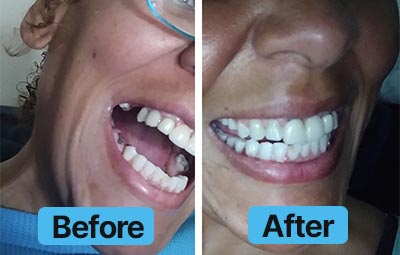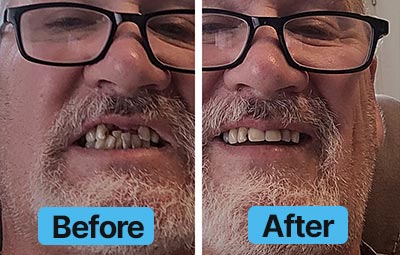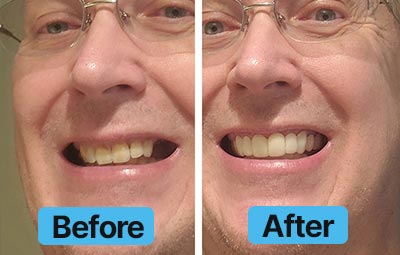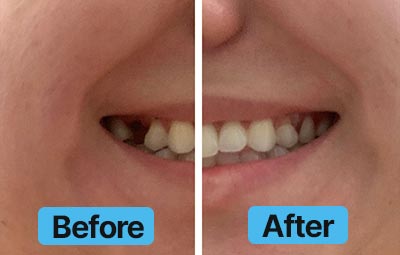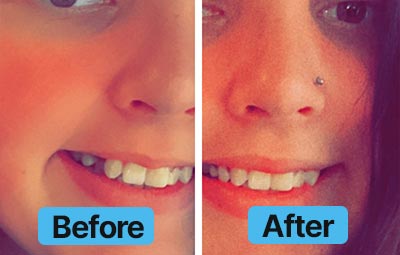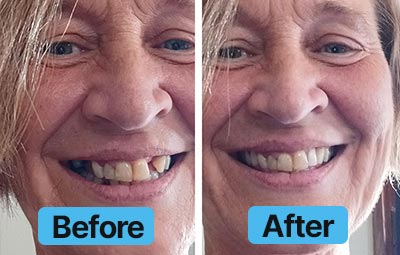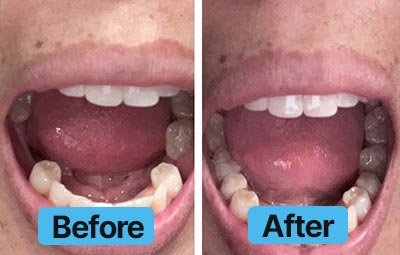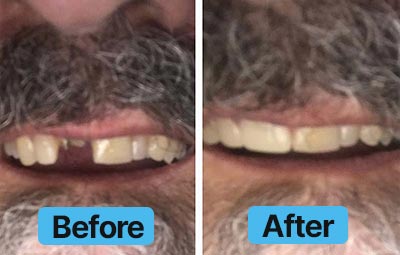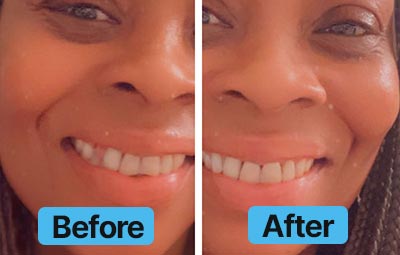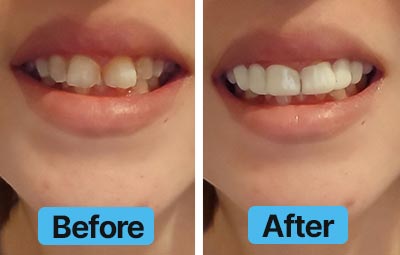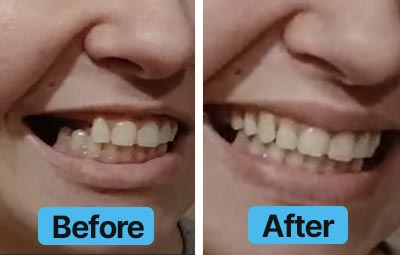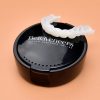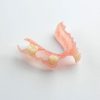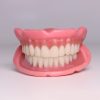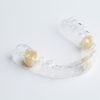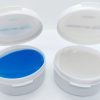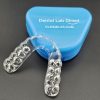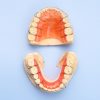Your dentures are on the way, and maybe your stomach is in knots, partially from nerves, partially from excitement. That’s completely normal.
Getting dentures marks a huge change, and if you’re reading this before wearing them for the first time, you’re probably wondering how it’s going to feel, how long the awkwardness will last, what foods you can eat, and if you’ll ever feel like yourself again.
The first week with new dentures is rarely easy but knowing what to expect can make the transition much easier. This guide will walk you through what you can expect, so that you can adapt faster and feel like yourself again sooner.
What the First Week with New Dentures Feels Like
The first few days often feel awkward. Your gums may feel sore or tender, especially after meals, and you might notice more saliva than usual, which can make you feel like you’re drooling.
In addition to that, you may be a bit clumsier when eating or drinking, the words you say might sound strange, like you have a lisp, or be difficult to form. Even smiling might be a little weird to do.
All of that is expected.
Your mouth is adjusting to the dentures, and your muscles need time to adapt. Because of this, most people experience some level of frustration or self-consciousness during this adjustment period.
The good news is that these changes are almost always temporary. As your mouth heals and adjusts, things start to feel more natural day by day.
Generally, it takes around several weeks to get comfortable with your dentures. If you’d like to learn more about how long it takes to get used to dentures, we’ve covered that in more detail there.
How to Adapt to New Dentures
Your first week will go smoother when you take things slow and know what to expect.
1. How to Prepare for Discomfort
The first day will be awkward. The second day on will probably be a little more uncomfortable as you begin to feel pressure and tenderness, especially after wearing the device all day long or while eating.
What can help:
- Take over-the-counter pain relievers
- Rinse with warm salt water to soothe irritated gums
- Use a cold compress on your cheeks to reduce swelling
- Give your mouth breaks throughout the day to rest
2. How to Eat with New Dentures
For the first few weeks with your new dentures, you’ll need to take extra precautions when eating because your gums are healing and need gentle treatment as they adjust. Unfortunately, certain foods can put unnecessary pressure on sensitive areas. You can’t just bite into a crisp apple or chew a steak the way you used to. You’ll need to eat foods that will make chewing with your dentures as pain-free as possible.
We recommend starting with soft foods that don’t require much chewing and cutting your food into small pieces. You should chew slowly and avoid biting directly with your front teeth since it can dislodge the denture or irritate the gum line. Stay away from sticky or hard foods completely since they often dislodge dentures and can make sore spots worse.
Your Grocery List For Week One
Here are some denture-friendly foods that work well during the first week:
- Soup
- Smoothies
- Applesauce
- Oatmeal or cream of wheat
- Mashed potatoes
- Cooked, soft vegetables (like carrots or squash)
- Soft scrambled eggs
- Yogurt without fruit chunks or seeds
- Ice cream and popsicles
- Cottage cheese
- Ripe bananas or canned peaches
- Rice or soft pasta with mild sauces
- Ground meat or tofu with a smooth texture
3. How to Talk with Dentures
The longer you wear your dentures, the more you’ll improve your speech over time.
Until then, speak slowly at first and try enunciating tricky sounds like “s” or “f” to avoid slurring your words.
Something that has helped boost the confidence of many is to practice reading out loud before going out or back to work. Reading aloud helps build confidence and gives your mouth the repetition it needs to form words clearly again.
4. How to Deal with Sore Spots
Sore spots are sometimes an unfortunate side effect of getting new dentures.
When you get them, the best thing to do is rinse your mouth with salt water, rest your gums, and avoid irritating foods. For more relief strategies, check out 5 Tips for Managing Sore Spots with New Dentures.
However, if you continue experiencing pain or it worsens, the problem might be your dentures not fitting properly. This means an adjustment may be necessary. A reline product, like Quick Reline, can attach to your dentures and reshape the fit so they sit more comfortably against your gums, all without a trip to the dentist!
Ready to Start?
Adjusting to dentures takes time, but each day gets easier as your mouth adapts, and your confidence builds. If you need help along the way, Dental Lab Direct provides convenient at-home solutions that fit your schedule and budget.
For those still looking for new dentures, Easy Dentures is a great choice to start with. It’s comfortable, affordable, and designed for everyday use.
Ready to start feeling like yourself again? Explore our affordable denture options at Dental Lab Direct today.
 60 DAY warranty on all custom-made products | 1,000+ 5 Star ★★★★★ Reviews
60 DAY warranty on all custom-made products | 1,000+ 5 Star ★★★★★ Reviews

